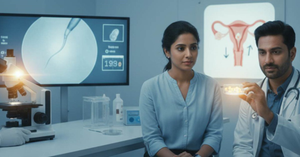Almost one in every 700 births worldwide suffers from one of the most common chromosome abnormalities, called Down syndrome. It is also known as trisomy 21 and is caused by the presence of an extra chromosome 21. Therefore, it is important for parents to understand the condition and how they could support their baby with Down syndrome. Read below this comprehensive guide to learn about the causes, characteristics, and associated health conditions.
Causes of Down Syndrome
This health condition is primarily caused by an error in cell division known as disjunction, which leads to an extra copy of the chromosome altering a person’s course of development and physical features. Though the exact cause of disjunction is not yet known, it is not related to anything the parents did or did not do during pregnancy.
Physical Features and Characteristics
While the babies show similar physical features, the severity of these features can vary. Some of the most common characteristics of babies with Down syndrome include
- Small ears
- Short stature
- Flat facial profile
- Upward-slanting eyes
- Low muscle tone
- Single palmar crease
Health Conditions
Babies suffering from Down syndrome are often associated with an increased risk of the following health conditions:.
- Vision and hearing impairments
- Congenital heart defects
- Respiratory infections
- Leukemia
- Thyroid-related issues
Developmental Delays
Babies with Down syndrome usually experience developmental delays and intellectual disabilities to varying degrees. Such kids are typically slower in coordination and movement and also suffer from learning disabilities. In some cases, people with Down syndrome may also show impulsive behavior and difficulty maintaining focus. However, speech, physical, and occupational therapies and the right support can help such kids meet developmental milestones.
Social and emotional development
Kids with Down syndrome typically face challenges in social interactions; however, they are able to develop meaningful relationships. A supportive and loving environment is greatly beneficial in providing them opportunities for learning and dealing with social situations.
Treatment
While there is no specific way to cure Down syndrome, providing good care to the patients can greatly benefit dealing with this health condition. According to a report by NICHD, early intervention programs can help improve and support the development of people with Down syndrome.





Be the first one to comment on this story.